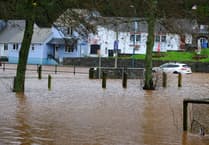The record number of wildfires across Britain this year has highlighted the urgent need to better recognise the role of grazing animals and active farming in reducing fire risk, says the National Sheep Association (NSA).
There is little doubt that climate change and prolonged dry weather have fuelled unprecedented wildfire incidents in 2025. But NSA believes the benefits of grazing and active land management, particularly in upland areas, are being consistently overlooked in policy and public debate.
NSA Chief Executive Phil Stocker said: “Recent Defra figures show sheep numbers in England have fallen by 11% in the past three years. I would expect much of this decline to be concentrated in the uplands, as schemes such as Higher Level Stewardship (HLS) have reduced stocking rates, and more land is lost to tree planting or rewilding projects linked to carbon credits and other offsetting measures.
“The result is an increased risk of wildfires, with devastating consequences for nature, vegetation, peatlands, air quality, and carbon emissions. Fires also put lives, property, and public funds at risk – not least because of the huge volumes of water required to extinguish burning vegetation and soils, at a time when water resources are under pressure.
“NSA is highlighting that well-managed grazing animals help create a patchwork of habitats that naturally slows the spread of fire. Mr Stocker continues: “At a time when climate change is heightening the risk, we should be placing a far higher value on livestock grazing and active farming as frontline fire prevention tools.”
The debate also raises questions about land management approaches. NSA considers responsible, small-scale, controlled burning to bring multiple benefits, including reducing fuel loads and preventing catastrophic wildfires, whereas leaving land to ‘go wild’ can allow highly combustible vegetation to build up unchecked.
Mr Stocker continued: “When fires do break out, farmers and land managers are often among the first on the scene, working alongside fire services to safeguard people, property, and landscapes. They provide their time, machinery, fuel, and skills freely, with no compensation, for the benefit of wider society.
“This reflects the broader, often under-acknowledged role farmers play in rural resilience – whether clearing a road after a storm, rescuing stranded vehicles, or helping contain wildfires.”
NSA has welcomed the fact that the Welsh Government’s new Sustainable Farming Scheme (SFS) does recognise the active role farmers play in their communities through a proposed ‘social payment’.
NSA is now urging Defra to adopt a similar approach.
Mr Stocker added: “It’s to the Welsh Government’s credit that they are valuing farmers’ wider contributions. In England, Defra must take note. Farmers are not just food producers – they are land managers, problem solvers, and often the first line of defence when rural communities face emergencies.”





Comments
This article has no comments yet. Be the first to leave a comment.